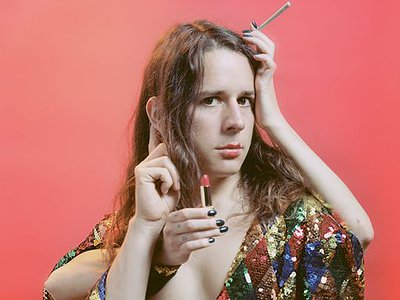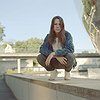Name: Buvette
Current Release: Elasticity on Pan European
Musical Recommendations: Don Carlos and Esma Redzepova
Website/ Contact: If you enjoyed this interview with Buvette you can find more information about him on Facebook
When did you start writing/producing music - and what or who were your early passions and influences?
My early influences are the things my father used to listen to. Lots of different stuff: Led Zeppelin but also Peruvian traditional music, classical Indian and early house music. I started playing the drums when I was 14 and we had a band a couple of weeks later with my close friends in the Swiss mountains. I have to admit that when we started playing together, all of our main influences was the music that happened between 1967 and 1972. We were radical; Electric Ladyland, Deep Purple in Rock, Iron Butterfly, Live at Leeds by The Who etc.
For most artists, originality is first preceded by a phase of learning and, often, emulating others. What was this like for you? How would you describe your own development as an artist and the transition towards your own voice?
Being as musically curious as possible; going towards lots of different musical genres with a focus on a non-academic vision of things. My parents took me to lots of types of concerts, and later I just tried to enlarge the panorama.
What were your main compositional- and production-challenges in the beginning and how have they changed over time?
In the beginning it was not about composition or production. The main thing was just the energy and being able to play together and share a musical way of making something together.
Now I am much more into aesthetics and tricks. I want my songs to surprise the listener. I want them to switch from one landscape to another.
Tell us about your studio, please. What were criteria when setting it up and how does this environment influence the creative process? How important, relatively speaking, are factors like mood, ergonomics, haptics and technology for you?
My studio is very different than the one I’ve worked in before. Also for a long time my studio was just everywhere. During the first four years playing as Buvette I did everything under a garage in the mountains. Nice view, but cold. Despite that I’ve slept there hundreds of time, usually four hours max, no matter if it was day or night. But all the music was done on my side. No one would listen to it before it was finished. Nobody other than me was allowed in that room. Now I’m working in Paris, at Pan European’s studio and it’s a messy but functional room with lots of gear, empty cans and friendly visitors. The open door totally changed the way of doing music.
What are currently some of the most important tools and instruments you're using?
Drums, a dx-7, a couple of drum machines, percussion, a zoom recorder, and lately a piano.
Many contemporary production tools already take over significant parts of what would formerly have constituted compositional work. In which way do certain production tools suggest certain approaches, in which way do they limit and/or expand your own creativity? Are there any promising solutions or set-ups capable of triggering new ideas inside of you as a composer?
I’ve started to use a computer for my music instead of just a sampler in 2011. I’ve always used technology in a minimal way. The computer helps me gather all the samples of a song, but I don’t really use it to create any types of sounds (apart from a couple of MIDI basses). I’m not too much into VSTs etc. Playing live with other people with as little gear as possible satisfies and enlarges my creativity more than the machines.
Could you describe your creative process on the basis of a piece or album that's particularly dear to you, please? Where do ideas come from, what do you start with and how do you go about shaping these ideas?
Most of the Elasticity creative process has been made on the drums. It’s my main instrument. I’ve spent three months in my basement, playing the drums, having short breaks to record the melodies that came to my mind as I was playing. Then I start enlarging the thing and getting to the point. The music inspires the lyrics most of the time. It tells the climate, the atmosphere of the scene.



